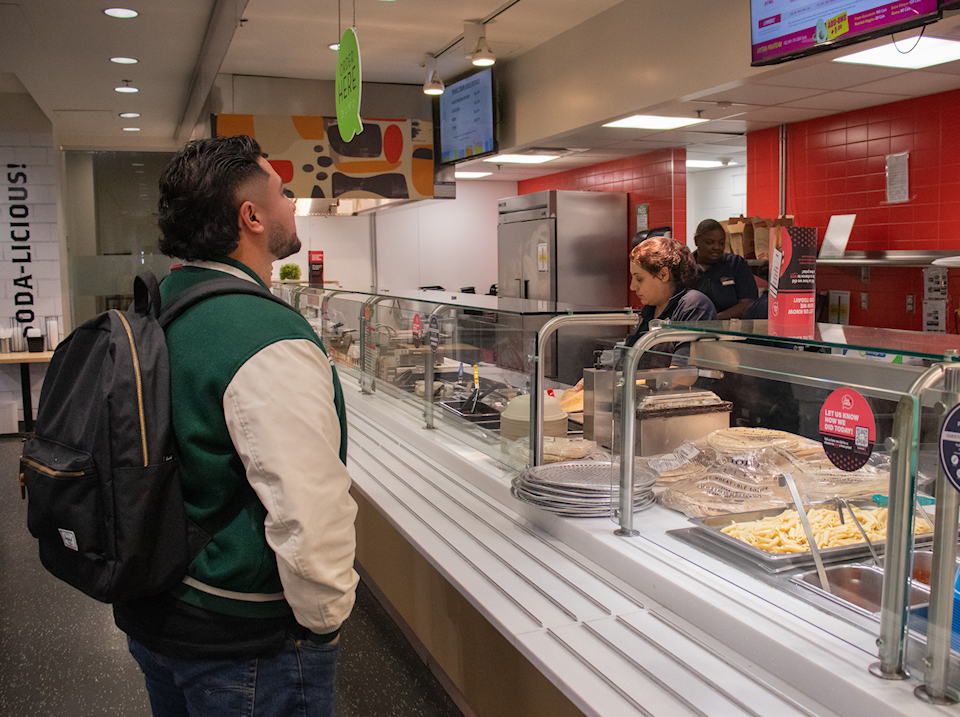As a student, the combined responsibilities of tuition with living expenses during a time when you're restricted on the hours you can work is a difficult financial feat to manage.
As if it weren't hard enough, there's one added burden which Humber students are unfortunately very familiar with, and that would be over-inflated food prices on campus.
For example, $7 for 200 grams of melon or $10 for a sandwich that falls short of 250 grams. These are just some of the prices of snack vendors on the North campus. For comparison, Fortinos, the nearest Loblaws-owned grocery store to Humber, lists a full melon (averaging more than 800 grams) of the same kind for $6 to $7.
If you're a student reader, you may find yourself wondering who's doing this. One organization that appears to have gained a reputation for it is Chartwells.
Chartwells is a catering company contracted by the school to provide culinary services on Humber grounds. Food can be purchased from vending locations around campus using personal bank accounts or with Humber-managed meal plans.
Meal plans are available for any student to buy into, however, for students living in residence, it is a mandatory purchase. This falls under the Humber Residence and Dining Agreement.
To make matters worse, the minimum costs of meal plans have increased by $500 from the 2023-2024 term into our current semester. Students buying into a meal plan, forced or not, are now paying rates spanning from $2,850 to $4,600 per year.
Joylin Pinto, a corporate representative of Chartwells, said in an email to questions from Et Cetera that meal plan price tags, the inability to opt-out, and refunds on leftover balances are managed by the policies of Humber. The catering company didn’t comment on this, aside from stating they did not set these parameters in place.
Pinto said “value meals” are available for students to spend less. However, these have either proven for some to be poorly prepared or insufficient in satisfying an appetite.
Where the price is low, the quality of the meal tends to be as well.
Third-year nursing student Ethan Hamilton-Dicker, who lives in dorms and works as a resident assistant, agreed.
“People, lots of times, myself included, have received under-cooked food,” he said.
Hamilton-Dicker also agreed with me regarding the pricing of the food itself.
“The meal prices, I would say, are not justified with how the quality of the meals are, as I don’t find myself filled a lot of the time after eating the front meal option,” he said.
It comes as no surprise that students at North and Lakeshore campuses are organizing a protest against Chartwells and Humber’s policy of forcing students in residence to buy a meal plan. They are focusing their demands on an optional meal plan for students in dorms.
In what seems to be an attempt at saving face, Chartwells launched a survey asking how they could do better almost immediately following the calls for action.
The demo, planned for Oct. 10, will see students at the North and Lakeshore campuses meet at dining areas. It's time for Chartwells to respond in a way other than a survey, an exercise that could have no effect.



